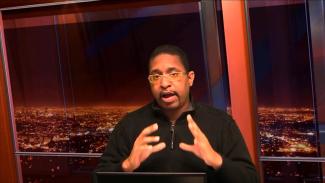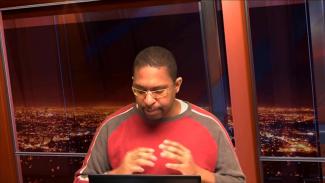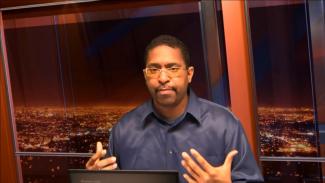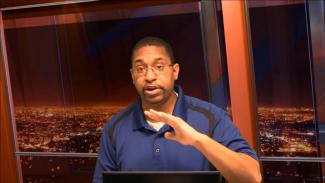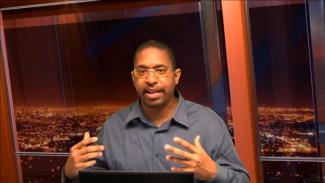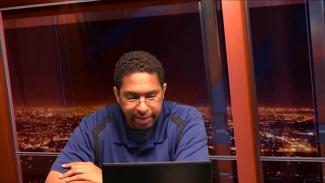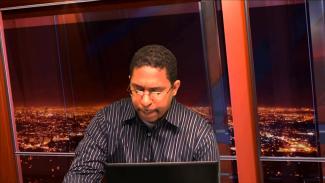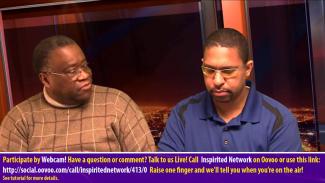As we study rebellion and redemption, what impact did sin have on humanity? How did sin impact the children of Adam and Eve as well as the generations to come? What does all this have to do with the Great Controversy? Did God step in to deal with this crisis or did He leave humanity on its own to fend for themselves? What does God's relationship with Abraham teach us about how sure can we be about God's promises? How do the lives of Jacob, Esau, and Joseph show us the growing process God takes us through to accomplish His plans for us?
Topic: Forgiveness
To see more broadcasts select show names, a year, or all video media.This week we start a new series on rebellion and redemption. Why is the world as messed up as it is today? Are the corruption, disease, pollution, and problems we observe part of God's design? What went wrong in the Garden of Eden? Is God to blame for Adam and Eve's mistake? Why did the tree of the knowledge of good and evil exist? Was mankind set up to fail? Why was humanity given power to choose? How does all this tie in with the Great Controversy and with our lives today?
As Jeremiah's ministry continues, his experience parallels that of Jesus. He is rejected, his warnings despised, he is falsely accused, and sentenced to death. How does God bring Jeremiah through this experience? How are things similar in our time? Why do people reject warnings? Was Jeremiah's message all about doom and gloom or was there hope in his words? Was the message of repentance unique to Jeremiah? Or, was it uniform among the prophets, apostles, disciples of Jesus, and Jesus Himself? Can a Christian avoid the topic of the judgment?
Jeremiah has a very human response to his pain and suffering resulting from being rejected as he spoke the Word of the Lord. What lessons can we learn about suffering and going through hardship resulting from standing for our faith? Will God's people today have a similar experience? What did Jeremiah learn about his weaknesses and what God does in spite of human weakness? How did Pashur respond to Jeremiah? What was God trying to say to the people of Judah? Is prophecy conditional or always fulfilled once a prophet utters the words?
Jeremiah brought a message of rebuke to the people of Judah. Because this was not a popular message, he met a lot of opposition. As people planned to do him harm God was with him to deliver him. Why did so many reject the warnings of the prophet? How does this still happen, even in our time today? Why were people more willing to listen to false prophets? If God hadn't sent them, who did? Why was Jeremiah told not to pray for the people? Are there limitations to God's mercy? If so, what happens when those limits have been reached? Is repentance always genuine?
What do we know about Paul before his call on the road to Damascus? What kind of person was he? What can we learn about God's willingness to save the worst sinners from the story of Saul's conversion to the Apostle Paul? How did the early Christians at first respond to Paul's conversion story? Are we any different today with people who have Paul's background? There is much we can learn from Paul's story as we seek to make disciples of men today. Paul's story is a story of hope for the undeserving and those who have a dark past in which they have made the most terrible mistakes.
What can we learn from Peter's outreach to the gentiles? How did it contrast from Paul's? What can we learn from the story of Cornelius and the conversion of his friends and family? What important lessons did Jews of the early church have to learn? What might that mean for the church today? Does culture or race matter when it comes to salvation? This week as we explore these lessons we'll look at the stories of early gentile converts to Christianity.
What can we learn about missionary activity from the story of Jonah? What kind of missionary was Jonah and how did he respond to his calling? Do missionaries have flaws? What does God's pursuit of Jonah tell us about salvation and who God desires to save? Why was Jonah reluctant to go to Nineveh? In what ways are we very similar in attitude to Jonah? This week we explore the story of Jonah from a missionary standpoint and learn how God shows compassion on the repentant and how His judgments are conditional.
What does the Bible teach us about God and missionaries? What is a missionary and what is their mission? In what ways is God Himself a missionary? What took place in the Garden of Eden that caused humanity to be lost? How did Jesus Christ address that problem? What were the consequences of Sin? Why did Adam and Eve fall? What implications does this have for missionaries today? Why did God choose to operate through missionaries instead of heavenly beings or doing the work Himself? This week we tackle many of these subjects as we explore God as a missionary.
Learn how the gospel of Luke portrays the crucifixion and resurrection. What do these two events mean for humanity? What hope do they provide for Christian believers? Which person in Jesus' final hours are you most like: Peter, John, Judas, the women, Joseph of Arimathea, Pilate, or Herod? This lessons shows us how in some ways we may resemble these individuals in how they related to the death and resurrection of Jesus. This week we explore the cross and the risen savior, without which Christian faith would be in vain.
What does Proverbs teach about relationships? How should people deal with conflicts with one another? How do words play a role in conflicts? If friends are to love one another, what does that love look like and how should it be demonstrated? What value should be placed on money in our personal relationships? This week, in Proverbs 17-19, Solomon explores conflicts and gives sound wisdom that can greatly impact how we get along with one another.
How can we be saved? What must I do to be saved? This week we explore salvation focusing on what happens in the life of the sinner that ultimately leads to a salvation experience. Is repentance really necessary? What is the relationship between being saved and having faith? What if I'm not really all that bad? Do I still need saving? How does a person know if they need salvation at all? These questions and others are tackled in this week's lesson.

